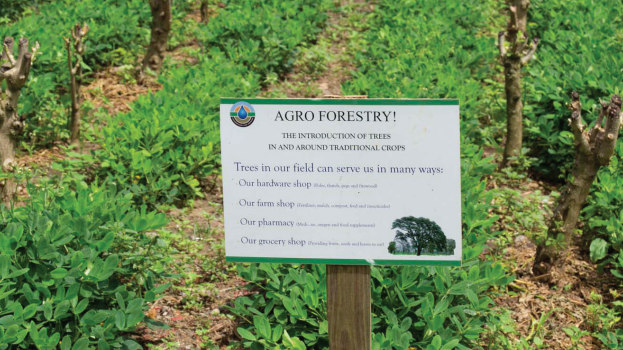Can compost manure replace ‘expensive’ subsidy programmes?
At 6am, Johann van Der Ham, a teacher at a local stewardship school in Chigumula, Blantyre, loads some waste into a bucket. The putrid smell of the mixture of decayed cheese and animal waste is overwhelming.
But the stench coming from the bucket is important for Johann to catch the elusive Black Soldier Fly.

Johann, who is also the national coordinator for the Crown Financial Ministries, explains that he uses the fly’s larva to convert his waste into clean compost.
“We’d make some holes on the top [of the container] and we put a cover on it,” he says. “And then we’ll introduce some waste in it. Any organic waste that is smelly will attract the fly.”
A single fly can produce up to 2.4 kilogrammes of mature larvae from just one gramme of eggs. Once the larvae hatches, it starts consuming the waste. The black soldier fly larvae can eat anything from household food scraps to residue from the cheese factory at the compound.
One larva can eat more than double its own weight in a single day, reducing the size and weight of the compost. The waste from the soldier fly larva is one of the cleanest compost manures in nature. It is odourless and contains no toxins.
Says Johann: “The waste that remains and produced by the larvae, is high-quality compost. You can apply that directly to your field with no problem and you will have amazing yields on your field.”
Potential alternative to expensive synthetic fertilisers
Johann believes the compost produced by the black soldier fly larvae can be used to reduce Malawi’s dependence on imported synthetic fertiliser, which is usually expensive and unaffordable for the majority of smallholder farmers.
He says: “It gives us a solution to the lack of money that people have in the village to buy fertiliser. We know the Fisp [Farm Input Subsidy Programme] is slowly phasing out. Less and less people are able to acquire coupons.
“So, people are stranded and now we come and present a solution. There is waste all around you. Organic waste. You can turn it into fertiliser. And we teach people how to make compost. Within six to eight weeks, that organic waste is fertiliser.”
Johann says that farmers who have adopted his organic farming methods have increased their yield three-fold. He believes adopting organic farming and the use of compost manure could save the Malawi government billions of kwacha that would have otherwise been spent on importing fertiliser.
Subsidised fertiliser is a drain on the national budget
In the 2021/22 financial year, the Malawi government allocated K142 billion to the Affordable Inputs Programme (AIP) to supply subsidised fertiliser and seed to 3.7 million smallholder farmers.
A few months later, President Lazarus Chakwera pledged another K70 billion to the programme when suppliers raised the prices of fertiliser before the growing season began.
But despite the heavy investments in synthetic fertilisers, at least 1.5 million people are expected to be food insecure in the 2021/22 growing season.
The then Ministry of Economic Planning and Development estimated that the government needed about K7.94 billion to buy 35 296 metric tonnes of maize to provide relief food to households affected by weather-related shocks such as dry spells and floods.
This brings the total government expenditure on food security alone to a whooping K219.94 billion (about $266 593 939.40). This is more than the K208.7 billion the government originally allocated to agriculture, water and sanitation combined.
The golden key to organic farming
The black soldier fly, if properly harnessed and used in organic farming, could provide a lasting opportunity for farmers to improve their capacity to increase their yield and revenue from farming.
The fly, owing to its importance and effectiveness in the production of clean compost, has the potential to reduce the farmers’ dependence on artificial fertilisers; hence, reducing their cost of production and ensuring higher profits from their farm.
It would also allow the government to save billions of kwacha that it can then direct to other programmes.
The fly is a useful by product
The black soldier fly larvae can also be used as chicken or fish feed. The larvae, owing to its voracious appetite and capacity to eat relentlessly for days on end, quickly grow into plump little sources for proteins.
A single plump soldier fly larvae contains 42 percent protein, 35 percent fat, as well as calcium, vitamins, amino acids and minerals.
He explains: “It is all found within that larva. So, if you can harvest the larvae and feed it to your chickens or fish, you have got a winning recipe and your eggs will be yellow, organic and healthy.
“And all they need is a supplement, is some of the green matter and maybe madeya [maize bran]. Your chicken business can run more profitably than before.”
Aside from that, the larvae can also act as a deterrent to many other pests. The way the black soldier flies converts the manure into a liquid-like form deters other flies from laying their eggs in the waste.
This can help keep other pests such as houseflies and tsetse flies from reproducing in human settlements; hence, reduce the spread of diseases such as cholera and sleeping sickness.






One Comment